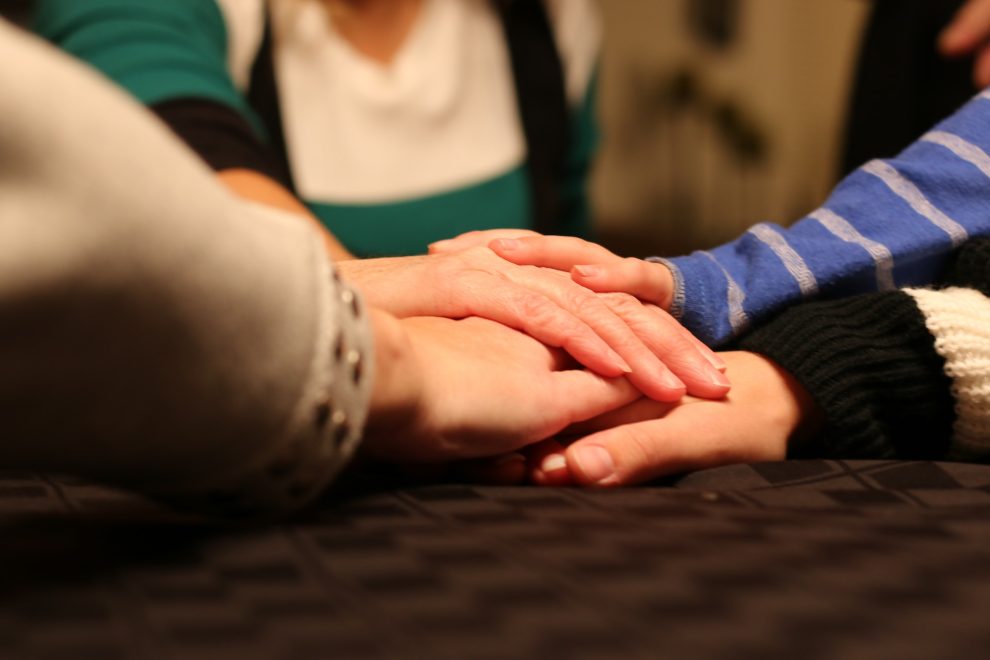I have been a Catholic for seven years; however, as a parent of gay children and a child with autism, I struggle at times with remaining Catholic. As an educational therapist with specialized credentials in autism, cognition, dyslexia, LGBTQ inclusion in health care, and vocational rehabilitation, I am extra-aware of how traumatizing the behavior of some Catholics can be toward LGBTQ people and neurodivergent people.
In my own family, a staunch application of certain traditional teachings on hell and damnation has not fared well, particularly since most of us are neurodivergent. All of us in our nuclear family have needed psychological counseling (anywhere from a brief stint to permanently ongoing) to undo the damage caused by fire-and-brimstone religion.
Some people may not realize that injustice involving these two demographics—LGBTQ people and those who are neurodivergent—often intersects. According to a recent Cambridge University study, LGBTQ identity is much more common in neurodiverse populations than it is in the general population. This research was backed up by additional studies reported in the journal Autism Research . I see this in real-time within my own family and in my educational therapy practice. In my family, everyone but my husband would be clinically classified as neurodivergent, so statistically speaking, the likelihood that one of our children might be LGBTQ is at least six times higher than the general population. In fact, two of our children do identify as LGBTQ.
For people with autism, especially if they are also LGBTQ, having a faith life within the Catholic Church can sometimes be life-giving and healing. But often, instead of being a source of comfort, the church is a source of trauma, even life-threatening harm. In my own family, our youngest son with autism (who gave me permission to write about him) went through a faith crisis due to various Christian influences that either directly or indirectly cultivated a fear of eternal damnation. As a Catholic parent, facing this issue has been challenging.
But the challenges don’t arise because my kids are neurodivergent and LGBTQ. The challenges are due to the way others, especially some people in the church, can treat families like mine.
Seeing and becoming part of these lived experiences forever changed my perspective on how the church ought to respond to both neurodivergent and LGBTQ youth. I have seen multiple suicide attempts and families ripped apart when children were diagnosed with autism or another neurodiversity and/or came out as LGBTQ. It is not an opinion but a fact that lives are endangered due to the rejection and unkind treatment of at-risk individuals. Years of inclusion ministry prove this, years of science and research prove this, and years of family trauma prove this. This is why every major medical association in the world says to affirm and accept both neurodivergent and LGBTQ people.
After some brushes with death within my own family, as well as seeing similar trauma in other families like my own, I realize that the lives and well-being of my children and the patients/students I serve depend on me being a safe parent and a safe educational therapist. Acknowledging this meant I needed to jettison problematic religious approaches and align my clinical practice and parenting with current science.
To do this, I became a certified “LGBTQ+ provider” by earning an LGBTQ+ Inclusion in Healthcare certification. This trained me to be a safe health care provider for LGBTQ people and their families, and it reinforced my awareness that this is a critical issue. In my professional practice, LGBTQ+ Inclusion in Healthcare training is particularly helpful since I work with people of all ages; adults on the autism spectrum often also identify as LGBTQ. Ultimately, as a Catholic, I decided that my commitment to the sanctity of life and human dignity overrides any religious preconceptions about behavior.
Many Catholic organizations attempt to guide people away from identifying as LGBTQ, and Catholics often seem wary of any move toward greater inclusion of LGBTQ people. Look, for instance, at the negative reactions to Pope Francis’ approval of blessings for people in LGBTQ unions.
And while Catholics may claim to welcome people with autism, many individuals and groups remain indifferent or even hostile to the needs of neurodivergent children. Neurodivergent families have often felt unwelcome in their parishes, even to the point of having to fight for their autistic children to receive the sacraments.
The reality is this: Treating LGBTQ and neurodivergent families with decency, respect, and equality has proven to yield good fruit—joy, peace, mental health, stability, and a longer lifespan—while religious ideas that encourage the church to exclude or shame neurodivergent and LGBTQ young people produce depression, anxiety, self-hatred, shame, self-harm, substance abuse, separation from God and the church, isolation, anger, serious mental illness, and even suicide. In short, when the church does not accept families like mine, it is, though perhaps unwittingly, complicit with actions that cause us harm.
Parishes can make practical moves to be more welcoming and affirming, living out Catholic teachings on the sacredness and dignity of all life. Reaching out and welcoming families of neurodivergent children, including autistic people in liturgies, and offering sensory-friendly liturgical experiences are all ways to affirm these individuals. While doing these things, congregations also need to be careful not to judge behaviors that might seem different or strange. When Catholic congregations and ministry leaders set aside harmful and dehumanizing assumptions about the LGBTQ community, they can begin to include and accompany LGBTQ young people and their families, instead of shaming or shunning them.
While support and resources for families of neurodivergent and LGBTQ children are robust in some Catholic spaces, they are gravely lacking in others . Personally, I thank God that by the time one of my children came out as gay, we had already left the traditionalist parish my family attended earlier. If we were still in that environment, she might not be alive today.
Image: Unsplash/Matt Silveira















Add comment